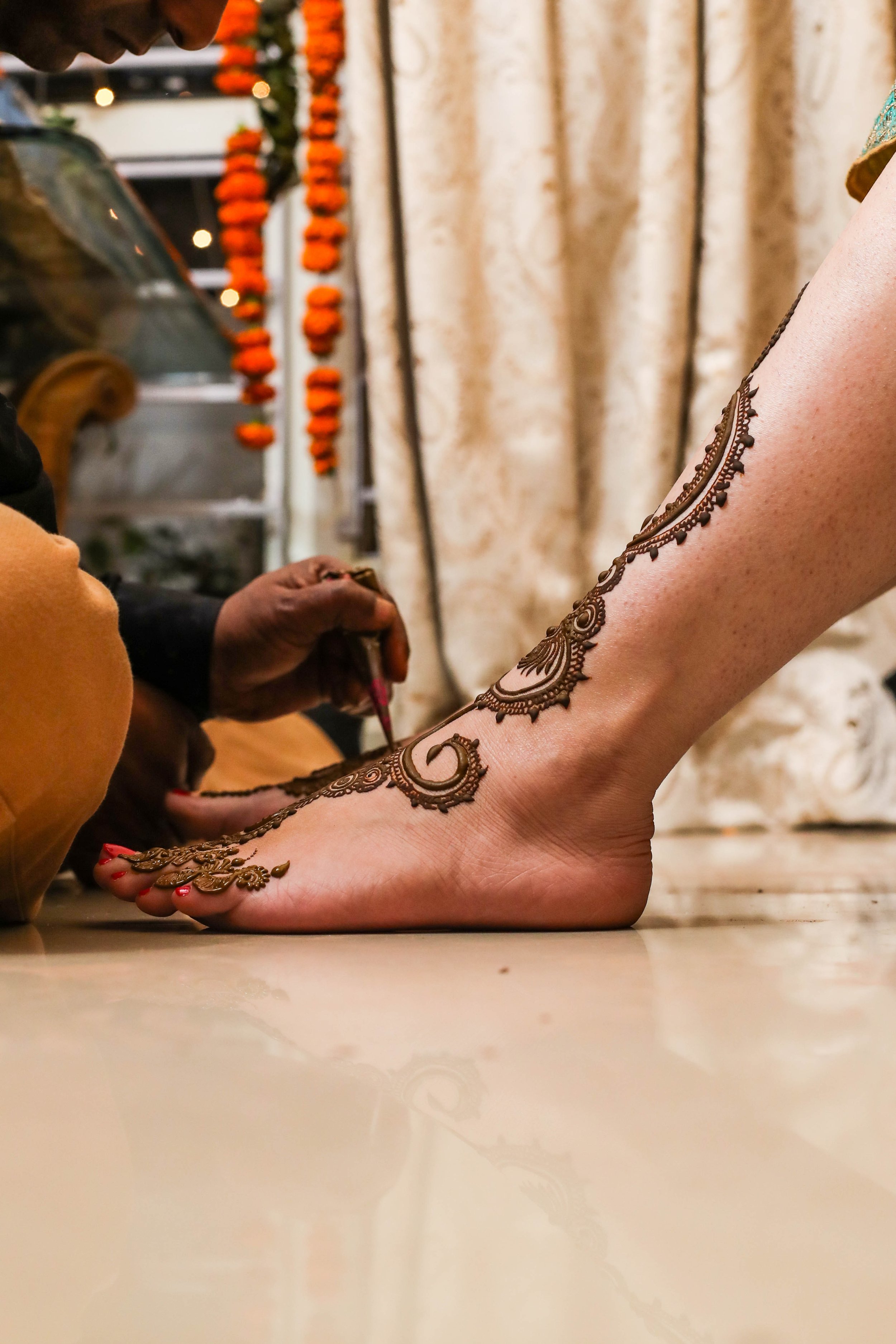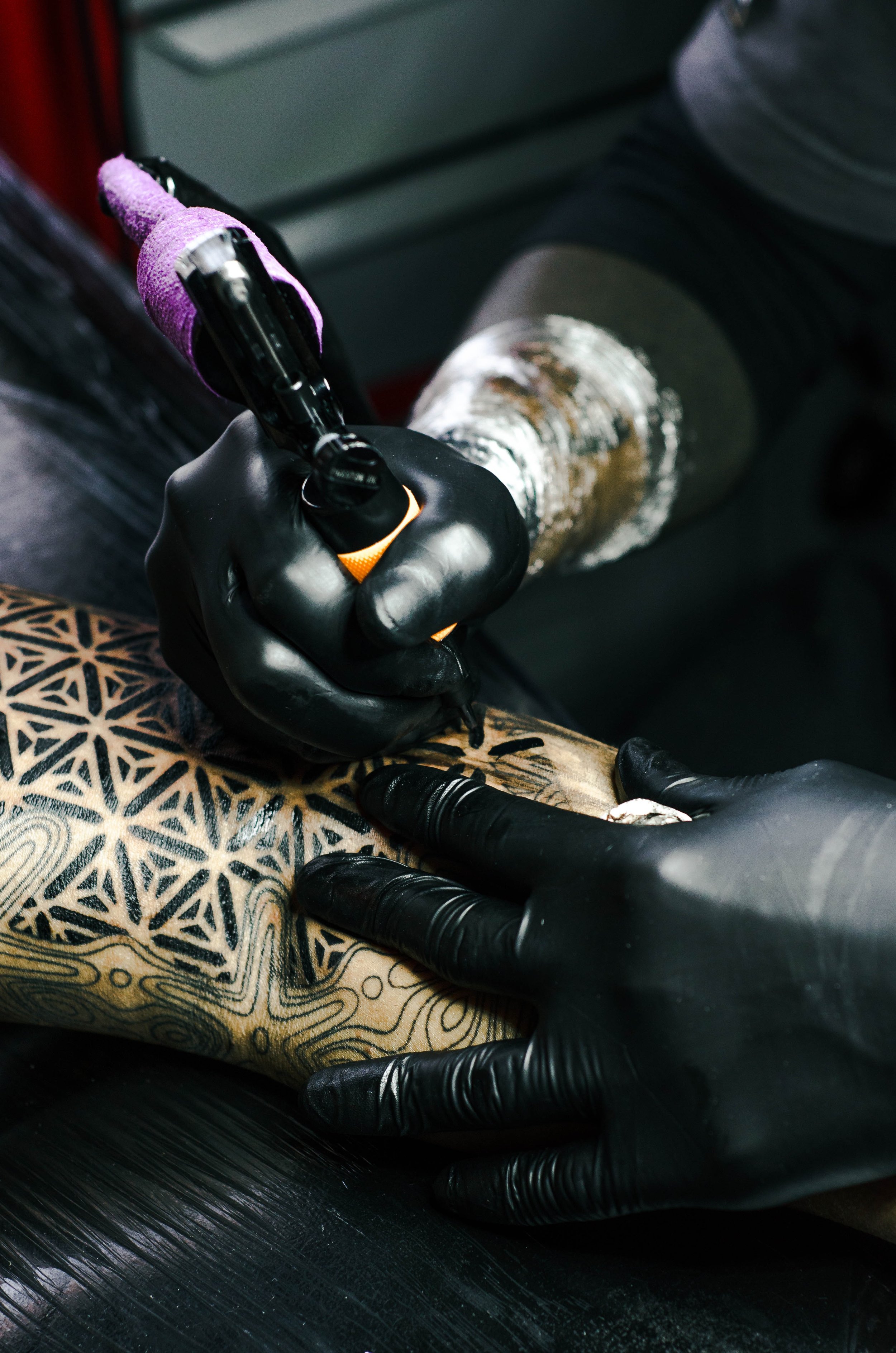From Apprentice to Artist: How to Become a Tattoo Artist
Tattoos have become increasingly popular over the years, with more people than ever before expressing their individuality through body art. This growing demand has created a need for skilled tattoo artists who can create stunning and unique designs. If you're someone who has always been passionate about tattoos and is interested in pursuing a career in this creative industry, then you might be wondering, "how to become a tattoo artist?"
Becoming a tattoo artist is not an easy feat. It requires hard work, dedication, and a lot of patience. But fear not, because we've got you covered! In this article, we'll provide you with all the tips and tricks you need to know to make your dream of becoming a tattoo artist a reality. And if you're worried about how much to tip tattoo artist, don't worry, we'll cover that too.
Step 1: Embrace Your Passion for Tattoos
There's no denying that tattoos have undergone a cultural shift in recent years. From taboo and rebellious to mainstream and ubiquitous, it's clear that there's something about these artistic markings that people find appealing. However, as with any art form, it's important to have a genuine passion for tattoos if you want to truly appreciate and understand their beauty.
For professional tattoo artists, having a deep love for the craft is essential. It's this passion that drives them to invest countless hours honing their skills and perfecting their designs. Whether it's mastering a specific tattoo style or experimenting with new techniques, tattoo artists who are truly passionate about their work are always striving to push their boundaries and create something truly unique.
Of course, it's not just tattoo artists who need to embrace their passion for tattoos. If you're considering getting inked, it's important to seek out a tattoo shop with skilled artists and a welcoming atmosphere. A good tattoo shop will be staffed by artists who are passionate not just about tattoos, but also about helping you realize your vision and creating a piece of artwork that you'll be proud to wear for the rest of your life.
So how can you develop a deep appreciation for different tattoo styles and designs? One of the best ways is to simply immerse yourself in the world of tattoos. Follow tattoo artists on social media, browse tattoo websites and forums, and visit local tattoo shops to see their portfolios and talk to artists in person. By getting to know the people and styles behind the tattoos, you'll gain a better understanding of what makes each piece unique and special.
Another great way to embrace your passion for tattoos is to start collecting tattoo art. Whether it's purchasing prints or commissioning custom pieces, owning artwork from your favorite tattoo artists is a great way to support the community and surround yourself with beautiful, inspiring pieces.
Step 2: Research and Learn
The tattoo industry has a rich history that spans cultures and time periods. From ancient civilizations utilizing tattoos for spiritual and cultural significance to the modern era where tattoos have become a form of self-expression and art, the tattoo industry has evolved greatly over the years.
Today, the tattoo industry is a booming business, with over 20,000 tattoo parlors in the United States alone. With so many options to choose from, it can be overwhelming for someone looking to get their first tattoo or even someone who wants to add to their existing collection.
One of the most important factors in finding the right tattoo parlor is understanding the various tattoo styles and techniques. Tattoo styles range from traditional to modern, realistic to abstract, and everything in between. Every artist has their own unique style, and it's important to find an artist whose style aligns with your vision.
Research is key when it comes to finding the right tattoo studio. Start by looking up certified tattoo studios in your area and researching their reputation and reviews. Word of mouth is also a great way to find a reputable tattoo studio, so ask around for recommendations from friends and family who have had positive experiences.
It's also important to research the trends and styles that are currently popular in the tattoo industry. Social media platforms like Instagram are great for finding inspiration and discovering artists whose work you admire. When you find an artist whose style speaks to you, make sure to research their portfolio and read reviews to ensure they have a good track record.
Once you've narrowed down your options, it's important to visit the tattoo studio in person to get a feel for the atmosphere and the cleanliness of the space. A reputable tattoo studio should be clean, organized, and have a friendly and welcoming environment.
Step 3: Apprenticeship - The Crucial Foundation
If you're serious about becoming a tattoo artist, finding and securing an apprenticeship position is crucial. Learning from seasoned tattoo artists in a professional studio environment will not only teach you the technical skills required but also give you an in-depth understanding of the industry.
Working closely with experienced tattoo artists will provide you with unparalleled opportunities to learn and grow as an artist. You'll gain access to valuable insight into the creative process, as well as insider knowledge about business practices and the industry as a whole. You'll also build relationships with your mentors, who can offer invaluable guidance and support on your journey to becoming a successful tattoo artist.
So how do you find an apprenticeship position at a tattoo shop?
First and foremost, do your research. Check out tattoo shops in your local area and beyond, and investigate whether they offer apprenticeship programs. Look for reviews from past apprentices, and reach out to fellow artists in your network for advice and recommendations. Don't be afraid to ask questions and express your interest in learning more about the apprenticeship process.
To increase your chances of securing an apprenticeship position, demonstrate your passion and dedication to the craft. Show up to interviews equipped with a strong portfolio, a positive attitude, and a willingness to learn. At times, apprenticeship positions can be highly competitive, so make sure to put your best foot forward.
Once you've secured an apprenticeship, remember that patience, dedication, and a willingness to learn are essential for success. Your apprenticeship phase may be long and challenging, but it is critical for laying the foundation for a fulfilling and successful career as a tattoo artist.
Step 4: Hone Your Skills
Becoming a successful tattoo artist requires a combination of essential technical skills and artistic abilities. But, acquiring those skills is just the beginning. To stand out in this competitive industry, it is essential to put in the time and effort to hone your skills continually.
Tips to Practice and Improve Tattooing Techniques
1. Draw and Sketch Regularly: Drawing and sketching are fundamental skills that every tattoo artist must have. Therefore, it is crucial to practice your drawing skills regularly. Try to sketch different tattoo styles, such as traditional, neo-traditional, or realism, to gain a better understanding of various tattoo designs. Drawing also helps to improve hand-eye coordination, which is essential for tattooing.
2. Collaborate with Other Tattoo Artists: Collaborating with other tattoo artists is an excellent way to learn and exchange new techniques and ideas. It may also help expand your network and reach new clients. Try to attend tattoo conventions, workshops, or guest spots at other tattoo places to gain more exposure and connect with other artisans.
3. Improve Your Needle Control: Needle control is a crucial skill that every tattoo artist should focus on honing. The better your needle control, the more precise and clean your lines and shading will be. You can practice this by using fake skin or practice on a fruit to improve your control and feel for the needle.
4. Learn from Your Mistakes and Get Feedback: Making mistakes is a natural part of the learning process. The key is to learn from them and keep moving forward. Getting feedback from other experienced tattoo artists or clients can help you to improve and avoid making the same mistake twice.
Resources for Skill Development
1. Books on Tattooing Techniques: There are many books available that cover various tattooing techniques and styles. Consult with other tattoo artists for recommended books or check out Amazon for a wide selection.
2. Online Tutorials: YouTube and Vimeo offer a large variety of online tutorials for tattooing. Many of these tutorials are free, and they cover a wide range of topics, such as needle techniques, shading, and color theory.
3. Tattoo Workshops: Tattoo workshops are an excellent way to learn new techniques and improve your skills. Many tattoo shops and conventions offer workshops, so be sure to keep an eye out for upcoming events in your area.
Step 5: Building Your Portfolio and Brand
You've spent countless hours perfecting your tattooing craft, honing your skills and techniques. But how can you showcase your talent to attract clients and stand out in a sea of creative professionals? The answer lies in building a strong portfolio and personal brand as a tattoo artist.
Why is a Strong Portfolio Important?
Your portfolio is essentially your digital resume–it's a collection of your best work, a showcase of your skills, and an opportunity to demonstrate your unique style and creativity. A strong portfolio can separate you from the competition and attract clients who are seeking a specific aesthetic or artistic flair.
But not all portfolios are created equal. A well-curated and diverse portfolio can make a significant impact on potential clients and show that you have a wide range of skills and styles. It's crucial to showcase your best work, as well as your versatility as a tattoo artist.
Tips for Creating a Well-Curated Portfolio
1. Select your best work: Think quality over quantity. Choose only the best examples of your work that showcase your unique style, creativity, and technical skills.
2. Showcase your versatility: While it's essential to have a specific style that defines your work, it's also important to demonstrate your versatility. Include a range of tattoo styles, from traditional to realistic to modern and abstract.
3. Provide context: Give potential clients a sense of the backstory behind some of your pieces. What was the inspiration? What was the client's vision? This can help them understand your creative process and approach to tattooing.
4. Update regularly: As you gain more experience and create new pieces, update your portfolio regularly. This shows that you are continually improving your craft and staying on top of current trends.
Developing Your Personal Brand
Your brand as a tattoo artist is more than just your logo or the colors you use. It's about the experience you provide for your clients and the unique style that sets you apart from the competition.
Developing a strong personal brand can do wonders for your tattoo business. It can help you grow your reputation, attract more clients, and create a community of dedicated clients and fans.
Tips for Developing Your Personal Brand
1. Identify your style: A unique style can differentiate you from other tattoo artists. Are you a master of traditional tattoos, or do you specialize in abstract designs? Knowing your style can help you attract clients seeking a specific aesthetic.
2. Be consistent: Consistency is key when it comes to branding. Use the same colors, logos, and design elements across all your social media platforms and website. This helps create a cohesive and recognizable brand.
3. Use social media effectively: Social media is an excellent tool for building your personal brand. Post daily updates, share behind-the-scenes footage, and engage with your followers.
4. Provide a great client experience: A positive client experience can do wonders for your personal brand. Focus on creating a comfortable and enjoyable tattooing experience, and your clients will become ambassadors for your brand.
Step 6: Nurturing Client Relationships and Earning Tips
Tipping is a great way to show your appreciation for their hard work and talent. But how much do you tip a tattoo artist? Well, the industry standard is 20%, but it is ultimately up to you and how satisfied you are with the final product.
However, it's important to remember that tipping is not just about the money. It's also about building strong relationships with your tattoo artist and fostering repeat business. When you tip your artist well, you show them that you value their work and appreciate their dedication to their craft. This can lead to a positive relationship, resulting in future appointments and even referrals to your friends and family.
To truly nurture your relationship with your tattoo artist, there are a few things you can do. Firstly, communicate clearly with them about your design ideas and expectations. This will help ensure that both you and your artist are on the same page and will lead to the best possible outcome. Additionally, be respectful of their time and honor your appointments, as this shows a level of professionalism and consideration.
Another important factor in building a positive relationship with your tattoo artist is providing feedback. If you are unhappy with any aspect of the final product, it's important to communicate this to your artist so that they can make adjustments. On the other hand, when you are completely satisfied with your new tattoo, be sure to let your artist know!
Frequently ASKED questions
-
A: The cost of a nose piercing at a tattoo shop can vary depending on several factors, such as the location, the reputation of the shop, and the expertise of the piercer. On average, you can expect to pay anywhere between $30 to $100 for a nose piercing. It's essential to keep in mind that these prices are approximate and can differ from one establishment to another.
-
A: Yes, tattoo shops commonly accept credit cards as a form of payment. However, it is important to note that acceptance of credit cards may vary among different tattoo shops, and some smaller or cash-only establishments might not offer this payment option. It's always a good idea to inquire with the specific tattoo shop you plan to visit regarding their accepted forms of payment, including credit cards, to ensure you can pay conveniently.
-
A: A good tattoo artist possesses a combination of technical skill, artistic vision, professionalism, and a commitment to safety and hygiene. Technical skill refers to their ability to execute intricate designs, create smooth lines, and achieve proper shading and color saturation. Artistic vision entails their creativity, ability to conceptualize designs, and talent for translating clients' ideas into visually appealing tattoos. Professionalism encompasses qualities such as good communication, respect for clients' wishes, and adherence to ethical standards. Additionally, a good tattoo artist prioritizes safety by following proper sterilization protocols, using high-quality equipment, and maintaining a clean working environment.
READ MORE…
Check out certified tattoo studios - the safe choice for your next tattoo.
Here’s how to become a tattoo artist in Colorado.
Read up on ear piercings 101: a beginner's guide to looking like a human pincushion.
Getting tattoos in Colorado | a look into the art and culture.




